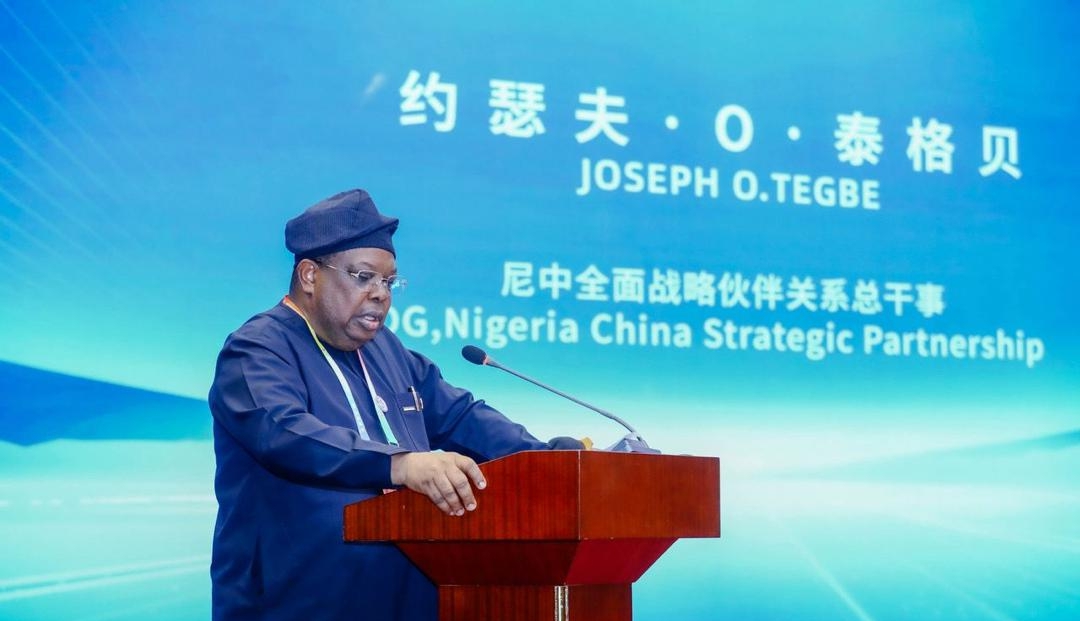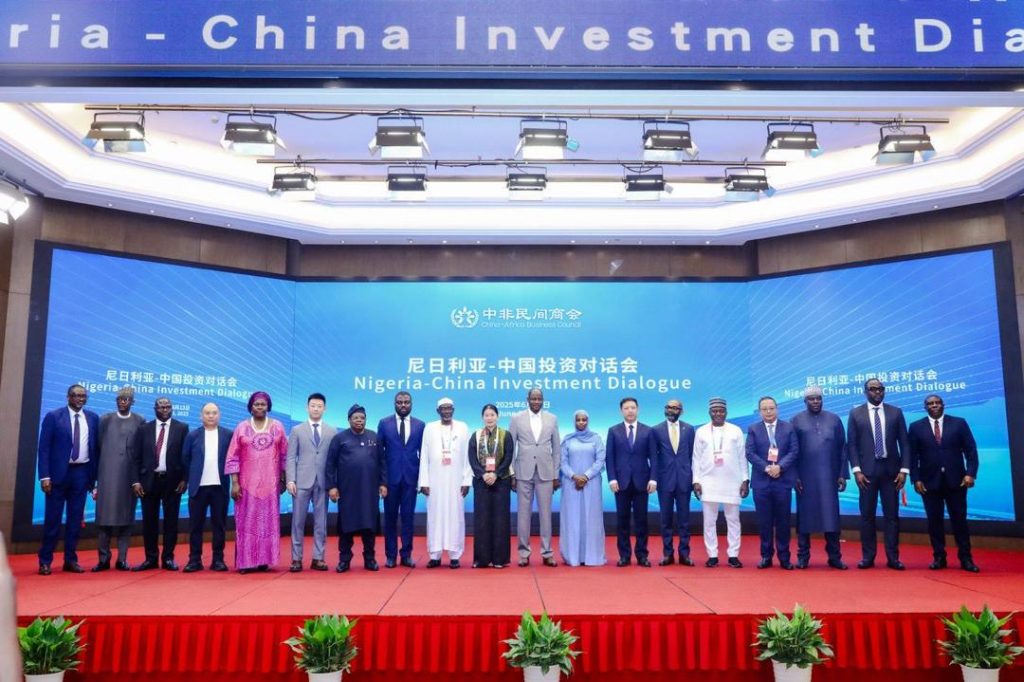
At the recently concluded Nigeria-China Investment Dialogue held in Changsha, the Nigeria-China Strategic Partnership (NCSP) reaffirmed its commitment to advancing sustainable and transformative economic cooperation between the two nations.
This commitment was emphasized in a keynote address delivered by the Director-General of NCSP, Mr. Joseph Tegbe, at the high-level forum which convened senior government officials, business leaders, and development stakeholders from both countries to explore new pathways for bilateral engagement.
In his address, Mr. Tegbe outlined a bold and forward-looking vision for a long-term partnership anchored on shared values, strategic alignment, and mutual respect.
Describing Nigeria and China as nations bound by ambition, ingenuity, and a collective will to rise, he drew a compelling parallel between the Eagle and the Dragon—national icons symbolizing strength, vision, and global leadership.
He noted that Nigeria and China, standing side by side, are not merely emerging economies but purposeful partners shaping the future of global development.
He commended the selection of Changsha as the host city for the dialogue, calling it both symbolic and strategic. Citing its revolutionary legacy and its transformation into a modern industrial hub, the Director-General drew comparisons with Nigeria’s own developmental trajectory.
Just as Changsha contributed to the rise of modern China, he said, Nigeria’s future is being driven by visionary leadership and a vibrant, youthful population determined to build a strong and prosperous nation.
Mr. Tegbe emphasized that Nigeria is not just a land of untapped potentials but a country firmly grounded in purpose. With a population of over 220 million, a GDP exceeding $400 billion, and a median age of just 18, Nigeria is strategically positioned to lead Africa into a new era of digital innovation, agricultural transformation, and industrial growth.
In agriculture, he highlighted Nigeria’s vast comparative advantage, noting that while China feeds 19% of the world’s population using only 7% of global arable land, Nigeria possesses over 70 million hectares of cultivable land—much of it yet to be utilized.
As one of the world’s leading producers of cassava, yam, palm oil, and sorghum, Nigeria offers a robust platform for agribusiness investment that can respond to global food security challenges.
Turning to technology, the DG noted Nigeria’s emergence as Africa’s leading innovation hub. With more than 122 million internet users and a thriving start-up ecosystem, the country accounted for over a quarter of the continent’s venture capital funding in 2024.
Citing companies like Paystack, Flutterwave, and Opay, he underscored Nigeria’s growing influence in the global digital economy.

He described the country as a strategic entry point for Chinese investors looking to engage with Africa’s rapidly evolving tech landscape, underpinned by a youthful, tech-savvy population.
Mr. Tegbe also pointed to ongoing macroeconomic reforms aimed at creating a more competitive and investor-friendly environment. Efforts to improve the ease of doing business, streamline regulatory processes, and offer targeted tax incentives have been complemented by focused investment in priority sectors such as healthcare, education, housing, and retail. These reforms, he explained, are part of a broader strategy to ensure inclusive, long-term development.
“The Nigerian spirit does not falter in the face of adversity. It adapts. It endures. It triumphs,” he affirmed.
Referencing President Bola Ahmed Tinubu’s renewed foreign policy vision, the Director-General described the evolving Nigeria-China relationship as a deliberate alignment of interests and values. He urged both countries to move beyond transactional engagements toward deeper, trust-based collaboration. “Let us build a bridge between the Dragon and the Eagle—not only for trade and technology—but for trust, shared values, and a collective commitment to prosperity,” he concluded.
The Nigeria-China Strategic Partnership reiterated its commitment to facilitating long-term, development-driven cooperation between the two nations. With a strong focus on industrialization, sustainability, and inclusive growth, the NCSP is set to drive a new era of bilateral partnership—one grounded in purpose and propelled by shared progress.




